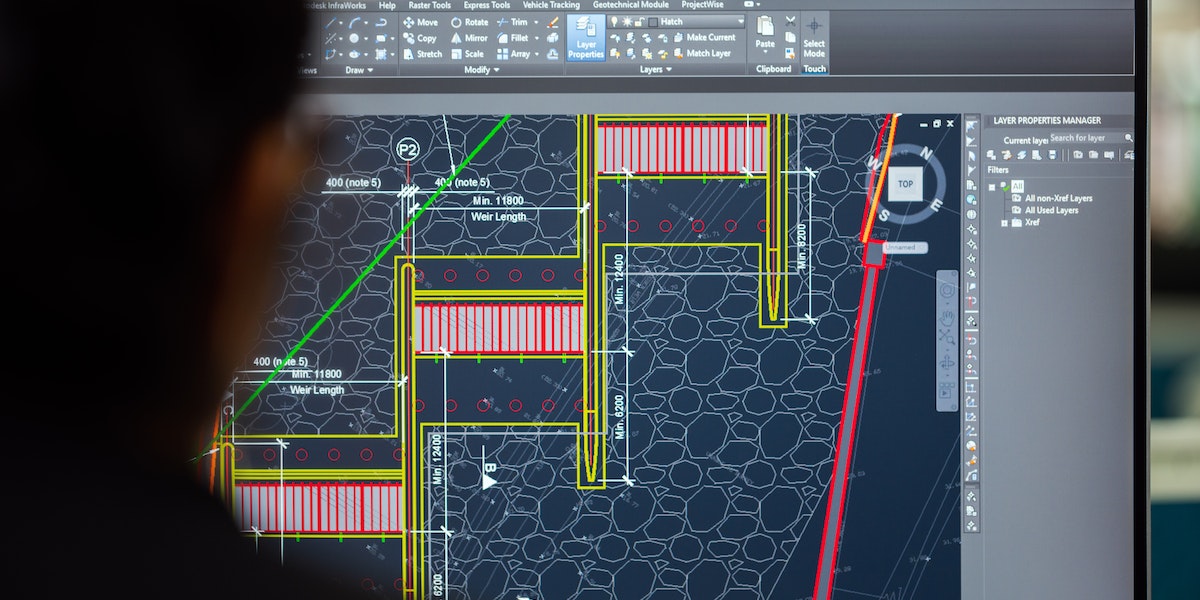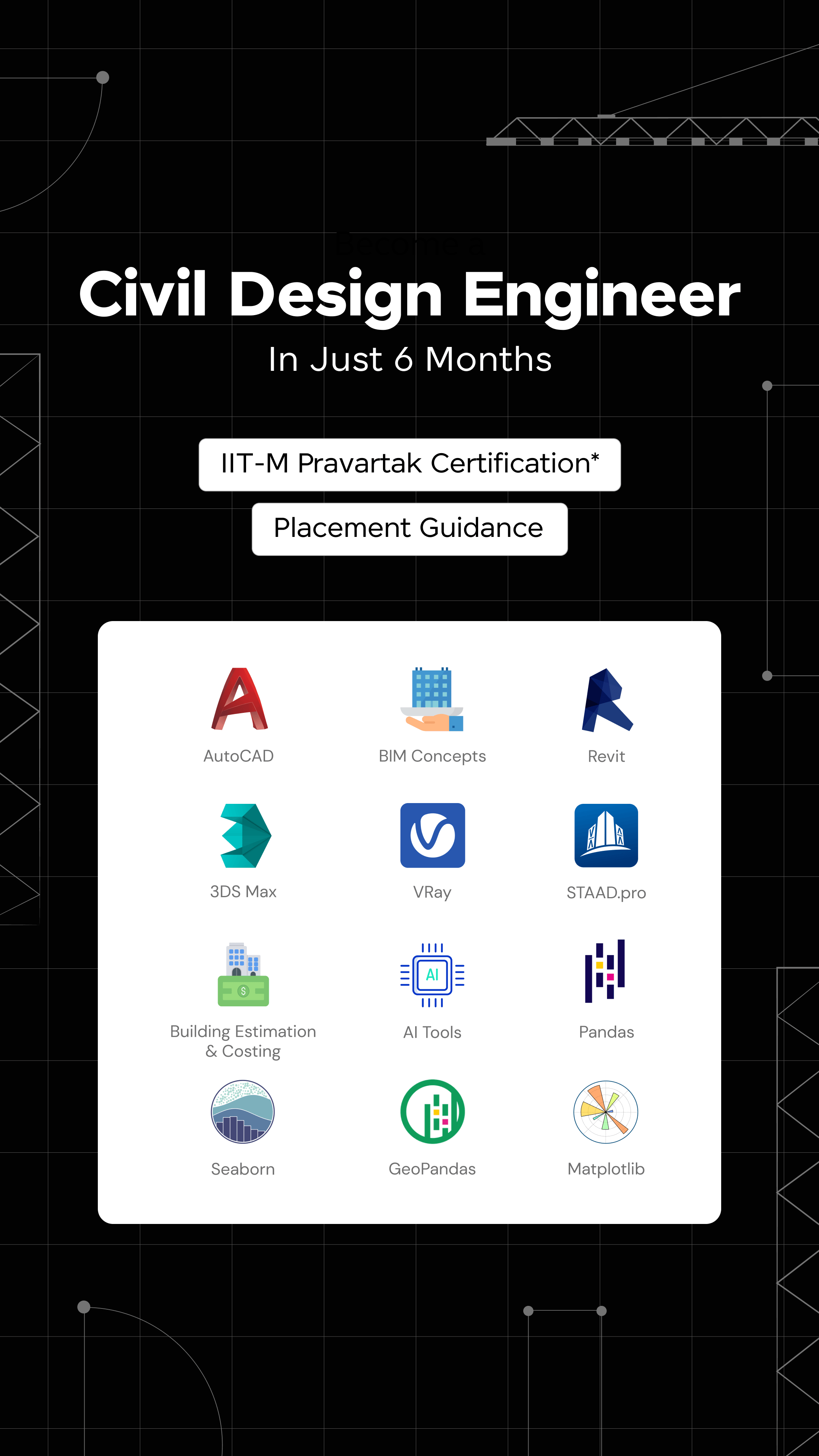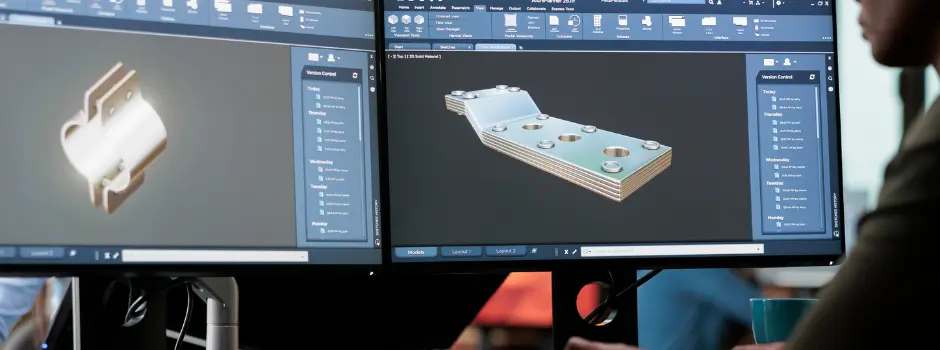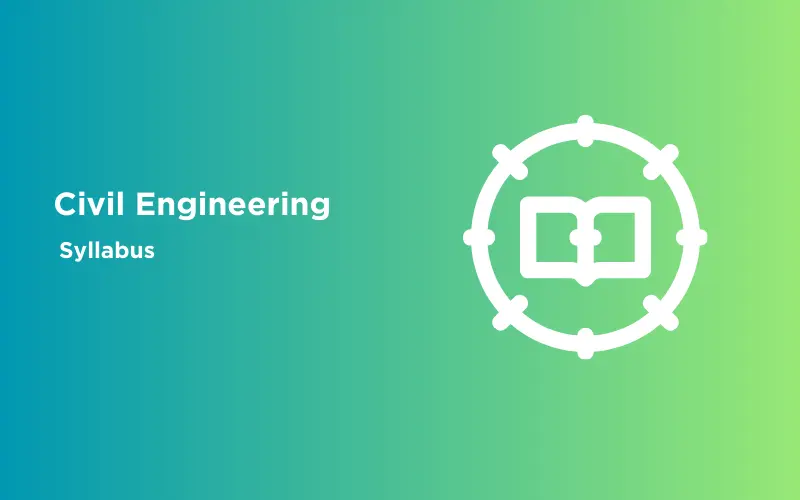
6 Best Skills Required to Become a Civil Engineer
Mar 13, 2025 5 Min Read 14700 Views
(Last Updated)
Civil engineering is a dynamic, impactful, and rewarding career where innovation meets infrastructure. Civil engineers bring in innovations to design, build, and maintain the infrastructure that surrounds us, from roads and bridges to buildings and water systems. The world of civil engineering is constantly evolving in terms of employing technology to meet the demands of the present.
Civil engineers play a key role in infrastructure development by designing, planning, and supervising the construction of various projects, including buildings, bridges, roads, and water supply systems. They ensure that these civil structures are safe, sustainable, and functional.
Are you an aspiring civil engineer? Want to build up your skills to nurture yourself in this ever-evolving field? Then, you’ll need to develop a unique blend of technical knowledge, problem-solving abilities, and soft skills. In this comprehensive blog, we will explore the skills required to become a Civil Engineer from scratch.
Table of contents
- Why should you become a Civil Engineer?
- Skills Required to Become a Civil Engineer
- Technical Skills
- Soft skills
- Tips To Develop the Skills for a Civil Engineer
- Learn the top technologies
- Gain Practical Experience
- Choose your Niche
- Build your Network
- Stay Current with Industry Trends
- Wrapping Up
- FAQs
- Why is technical upskilling important for a Civil Engineer?
- How can I improve my problem-solving skills as a civil engineer?
- Is there a demand for civil engineers in India?
- Is a strong foundation in mathematics necessary for civil engineering?
- Is Civil Engineering good for the future in India?
Why should you become a Civil Engineer?
A Civil Engineer will be directly or indirectly impacting the way we live, work, and interact with our environment through the sophistication of infrastructure innovations. Engineers tackle problems related to transportation, environmental sustainability, urban development, and more. Your problem-solving skills will be put to the test daily, driving innovation and creative solutions.
In today’s age of heightened environmental awareness, civil engineers play a crucial role in designing sustainable solutions that promote eco-friendliness, such as constructing energy-efficient buildings and responsibly managing water resources. Civil engineering is an ever-evolving field, that offers continuous learning and growth. You’ll have consistent opportunities for cutting-edge technologies, construction materials, and design methodologies, ensuring your skills remain relevant throughout your career.
Also, Civil engineers are in high demand due to the continuous need for infrastructure development, whether it’s maintaining existing structures or designing and constructing new projects. The field is never going out of style. Moreover, the field of Civil engineering offers competitive salaries, especially as you gain appropriate experience and expertise in your chosen stream.
Before we move into the next section, we’d like to ensure you are well-versed in the essentials of civil engineering. To smoothen your learning process, consider enrolling in GUVI’s Civil Engineering Career Program with Placement Assistance. You’ll gain hands-on knowledge of fundamental tools such as AutoCAD, Revit, 3dsMax, etc, needed for modern civil design.
Additionally, if you want to get started in the field through self-paced learning, try GUVI’s self-paced AutoCAD certification course.
Skills Required to Become a Civil Engineer

The journey to becoming a civil engineer begins with a strong educational foundation. Most civil engineering positions require at least a bachelor’s degree in civil engineering or a closely related field. Your educational qualifications should include relevant coursework in subjects like mathematics, physics, chemistry, engineering mechanics, structural analysis, fluid mechanics, geotechnical engineering, transportation engineering, and environmental engineering.
These subjects provide the fundamental knowledge and analytical skills needed to tackle real-world engineering challenges. However, to keep up your place in the competitive market, you should develop certain technical and soft skills. Here, in this section, let us discuss all the technical & soft skills for transforming into a successful Civil Engineer:
Technical Skills
Since civil engineering is a technical stream, it is crucial to master the relevant technical skills. Here are some of the fundamental technical abilities that civil engineers require:
1. Expertise in Mathematics and Physics
The fundamentals of civil engineering lie in sound mathematical and physics concepts. The expertise in these subjects will help you analyze and resolve challenging engineering issues, such as building hydraulic systems or calculating forces acting on structures.
2. Computer Skills
Expert Computer skills are required to become a Civil Engineer. Modern civil engineers mainly rely on computer software to complete activities including design, modeling, and analysis. It is crucial to be proficient in CAD software as well as engineering programs like AutoCAD, Revit, MATLAB, and Geographic Information Systems (GIS).

3. Construction Management
A thorough knowledge of construction processes, materials, and project management techniques is essential for handling and supervising the construction phase of projects. Effective construction management ensures that projects are in the right direction, completed on time, and within budget.
4. Transportation Engineering skills
You’ll need expertise in transportation engineering If you’re interested in building a career in transportation infrastructure. These industry-specific expertise will give you an in-depth perspective on the projects you take up. This includes designing and managing transportation systems, such as roads, bridges, and public transit, to facilitate the safe and efficient movement of people and goods.
5. Structural Analysis
Civil engineering starts with an understanding of how structures respond to different loads. To make sure that bridges, buildings, and other structures are safe and structurally sound, you will analyze the pressures and stresses placed on them. This analysis will lay a foundation for all your projects that deal with structures.
6. Geotechnical Engineering
Geotechnical engineering involves studying soil properties and behavior. You will employ this knowledge to design foundations for buildings and structures, ensuring they can withstand various soil conditions and loads. This is yet another important stream that a civil engineer should have.
Soft skills

In addition to proven technical expertise, civil engineers require a set of soft skills to be successful in their roles. These skills are essential for effective communication, team building, problem-solving, and management:
1. Problem-Solving
Civil engineers will often be tasked with solving complex engineering problems. Whether it’s designing a bridge or mitigating flood risks, the ability to spot issues, magnify, and develop innovative solutions is paramount. Problem-solving skills & proactive attitude will make the civil engineer’s job easier.
2. Communication Skills
Effective communication is vital in civil engineering. Engineers must convey their ideas clearly to stakeholders, colleagues, clients, and regulatory authorities. This clear communication ensures that everyone is on the same page and avoids misunderstandings.
3. Attention to Detail
As a Civil Engineer, you should review plans and calculations that can help prevent expensive mistakes. Small errors or oversights can have significant consequences, so attention to detail is a must.
4. Project Management
Civil engineering projects can be large and complex, involving multiple stakeholders, tight budgets, and strict deadlines. A Civil Engineer should also be a strong project manager, as it is essential for planning, organizing, and executing projects efficiently.
5. Team Building and Management
Many civil engineering projects involve multidisciplinary teams, including architects, surveyors, contractors, and environmental experts. Building, Collaborating, and managing effectively with these teams is crucial for the overall success of the project.
6. Adaptability
The field of civil engineering is dynamic and super-evolving. Every day in the life of a civil engineer opens up doors for new technologies, tools, advancements, materials, and regulations. Civil engineers must remain updated, adaptive, and open to learning about consistent changes.
Tips To Develop the Skills for a Civil Engineer
Developing civil engineering skills involves continuous education, practical experience, and personal growth. Here are some beneficial tips to help you enhance your civil engineering skills:
Learn the top technologies
The field of civil engineering is in constant flux, with new technologies, materials, and design methodologies emerging regularly. To stay competitive and provide the best solutions to clients, civil engineers must engage in continuous learning. It is crucial to learn and update yourself with industry-preferred software and tools like CAD, Revit, MATLAB, and more.

Gain Practical Experience
Getting practical experience is crucial to building the theoretical foundation that is provided by classroom study. Learners can work on real-world projects and gain practical experience by participating in real-world projects and internships. The knowledge and self-assurance that prospective engineers need to succeed in their careers come from practical experience, which helps close the knowledge gap between theory and practice.
Choose your Niche
Civil engineering has many specializations to consider based on your interests and career goals. You may choose to specialize in a particular area of civil engineering. Some common specializations include:
- Structural Engineering: Focusing on the design and analysis of buildings and bridges.
- Geotechnical Engineering: Specializing in soil mechanics and foundation design.
- Transportation Engineering: Designing and managing transportation systems.
- Water Resources Engineering: Managing water supply, treatment, and distribution.
- Environmental Engineering: Addressing environmental concerns and sustainability.
- Construction Management: Overseeing the construction phase of projects.
By selecting your niche, you can boost your knowledge and pursue employment prospects that are in line with your interests.
Build your Network
Building a network with like-minded individuals will help you gain experience and exposure to in-depth theoretical concepts. Expand your network, and learn from senior civil engineers and similar communities. You can take advantage of social media like LinkedIn to reach industry leaders, subject matter experts, and fellow civil engineers.
Stay Current with Industry Trends
Subscribe to civil engineering communities, journals, YouTube channels, discussion forums, and websites to stay updated on the latest developments, research, and technologies in the field. Attend webinars, conferences, and workshops to gain insights into emerging trends from Experts.
Wrapping Up
Becoming a civil engineer is a rewarding choice that offers the chance to shape the world, solve real-world challenges, and make a positive impact on society. Whether you dream of designing iconic bridges, sustainable buildings, or efficient transportation systems, the Technical & soft skills outlined in this blog will serve as your foundation for a successful career in civil engineering. Take advantage of the latest tools and technologies to level up your career game.
Kickstart your Civil engineering journey by enrolling in GUVI’s Civil Engineering Career Program and become skilled in key concepts such as 2D and 3D design, 3D modeling, Structural Analysis, and much more. Build real-life projects with industrial mentorship and make your portfolio stand out!
Also, if you wish to explore through a self-paced learning mode, try GUVI’s self-paced AutoCAD certification course.
FAQs
Technical skills are the foundation of civil engineering. These skills, such as structural analysis and proficiency in engineering software like AutoCAD & MATLAB, enable engineers to design and analyze complex structures and systems effectively.
Improving problem-solving skills involves practice and exposure to real-world challenges. Participate in hands-on projects, work on case studies, and seek opportunities to tackle complex engineering problems.
Yes, there is a consistent demand for civil engineers, as infrastructure development and maintenance are ongoing needs. India, a developing country is at a look for consistent infrastructure growth. Civil engineers are essential for projects related to transportation, water resources, construction, and environmental sustainability.
Yes. Mathematics skills are critical for civil engineers, particularly in solving complex problems in structural analysis and fluid mechanics. A solid foundation in calculus, algebra, and geometry is essential.
Civil Engineering is the growing branch of engineering. The demand for skilled civil engineers will steadily spike in India as infrastructure projects are on a steady rise.




























I enjoy it a lot is quite educative and inspirational